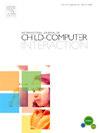生态学:利用增强现实技术帮助儿童应对气候变化
Q1 Social Sciences
International Journal of Child-Computer Interaction
Pub Date : 2025-09-06
DOI:10.1016/j.ijcci.2025.100771
引用次数: 0
摘要
气候变化经常以看似与儿童日常生活脱节的方式呈现给儿童。这种距离可能会损害他们对它的代理感,潜在地导致焦虑、无助感或鄙视感。我们的研究通过探索使用增强现实(AR)来揭示气候变化对当地物种相互作用的微妙但关键的影响,从而解决了这种脱节。我们专门研究了“物候错配”,当物种的季节模式发生变化时,会导致通常依赖它们的物种不同步,从而危及它们的生存。由于气候引起的环境变化,这种现象正变得越来越普遍。为了让孩子们以一种容易理解的方式了解这些微妙而又普遍的气候变化现象,我们开发了“生态学”(EcoARology),这是一款探测应用程序,它可以说明这些现象,同时将其与孩子们可能熟悉的环境和物种联系起来,最终为他们提供了在自己的代理范围内讨论和探索行动的工具。有17名儿童和13名看护人参加的研讨会揭示了该工具促进对话的方式,以及随着1)儿童和看护人的想法从幻想转变为现实,2)从个人日常行动转变为更广泛的气候问题,代理意识是如何变化的。这项工作强调了AR作为一种工具的潜力,可以培养与气候变化问题的联系感,以及它在增强儿童对这些问题的理解和同情方面的关键作用。本文章由计算机程序翻译,如有差异,请以英文原文为准。
EcoARology: Using AR to empower children in the face of climate change
Climate change is often presented to children within narratives that seem disconnected from their daily lives. This distancing can compromise their sense of agency towards it potentially leading to anxiety, a sense of helplessness, or disdain. Our research addresses this disconnection by exploring the use of Augmented Reality (AR) to reveal subtle, yet critical, impacts of climate change on local species interactions. We specifically explore “phenological mismatches”, which occur when species seasonal patterns change, causing species that typically rely on them to fall out of sync, compromising their very survival. Such phenomena are becoming increasingly common due to climate-induced changes in environmental cues. To engage children with such subtle and yet pervasive climate-change phenomena in an accessible way, we developed “EcoARology,” a probe app that illustrates such phenomena while connecting it to children's environments and species that they are likely to be familiar with, ultimately giving them tools to discuss and explore actions within their own scope of agency. Workshops with 17 children and 13 caregivers revealed the ways the tool prompted conversations and how a sense of agency changed as 1) children and caregivers transitioned from fantastical to realistic ideas and, 2) from personal daily actions to broader climate issues. The work highlights the potential of AR as a tool to foster a sense of connection with climate change issues and its pivotal role in enhancing children's understanding and empathy towards these issues.
求助全文
通过发布文献求助,成功后即可免费获取论文全文。
去求助
来源期刊

International Journal of Child-Computer Interaction
Social Sciences-Education
CiteScore
7.20
自引率
0.00%
发文量
73
 求助内容:
求助内容: 应助结果提醒方式:
应助结果提醒方式:


